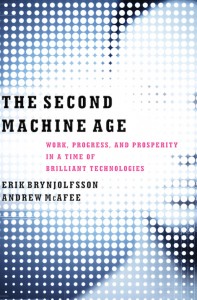Some of the world’s most visionary and innovative software teams are working to develop intelligent assistant applications that stand at the crossroads of knowledge graphs, natural language processing and context aware user experience design.
Consumer grade intelligent assistant products include Apple Siri and Google Now. The business world is watching IBM Watson – a Deep Q&A service based on Big Blue‘s cognitive computing era vision for business applications in healthcare, finance and customer service.
These large software technology companies are not alone. There are dozens of intelligent assistant startups helping to drive the field forward. Which startups are worth following?
Startups to Watch: Expected Lab (Mindmeld)
Expected Labs first received attention in 2012 when its Mindmeld application won over hearts and minds as Finalists at TechCrunch Disrupt. In 2013 the company secured more funding to bring Mindmeld to market.
http://www.youtube.com/watch?v=5NGGSBt0hkw
Expected Labs is a young company working on an old problem. The idea of computer as an intelligent personal assistant is as old as the history of computing machines. The most contemporary lineage dates back to the U.S. DARPA sponsored the CALO program (Video of Cognitive Assistant that Learns & Organizes). CALO’s platform was spun-off into technology development firm SRI – which in turn sold a platform to Apple for its Siri applications.
The intelligent assistant product landscape has seen significant advances in recent years thanks to advances in machine-learning, deep-learning, data graphs, semantic collection volumes — and more transparent and predictable human users. The next five years will be an exciting time for the community ;-).
Expected Labs is a team to watch in 2014 and beyond.
Videos below on Mindmeld and the future of intelligent assistants
Product Promotion
http://www.youtube.com/watch?v=5NGGSBt0hkw
Updated: Detailed Product Overview
http://www.youtube.com/watch?v=XKGcvRkagmY
Expected Labs CEO Tim Tuttle (Twitter) has created a series of short videos looking at the Future of Intelligent Assistants around key areas of performance improvement: Speed, Accuracy, Intelligence, and Anticipation. Tuttle is a big thinker with a sharp mind and sense of where knowledge graphs and anticipatory user experiences could evolve!
Let Tim Tuttle explain why we should be bullish on the age of intelligent assistants…
Speed
http://www.youtube.com/watch?v=L-PoDin69-g
Understanding the User
http://www.youtube.com/watch?v=vN266-vlmiQ
** I think ExperienceAPI and Learning Record Stores (LRS) could be integrated here!
Accuracy
http://www.youtube.com/watch?v=irRKPlUDGNA
Role of Knowledge Graphs
http://www.youtube.com/watch?v=HciVAMkmeS0
Contextual Computing – Focus
http://www.youtube.com/watch?v=c2q31dMHX4E
Learn More?
Casual or skeptical observers might want to consider the future of Intelligent Assistants and how society might approach the idea of anticipatory computing experiences and the notion of the device listening to you! These platforms will bring new risks, rewards and responsibilities to our digital culture.
More curious technical minds will want to learn about machine-learning, deep-learning, graph databases (Neo4j), semantic graphs (e.g. ConceptNet), TinCan-ExperienceAPI, Learning Record Stores (LRS), et al.
Startup to Watch: Expected Labs & Mindmeld Intelligent Assistant December 16th, 2013garrygolden@gmail.com

